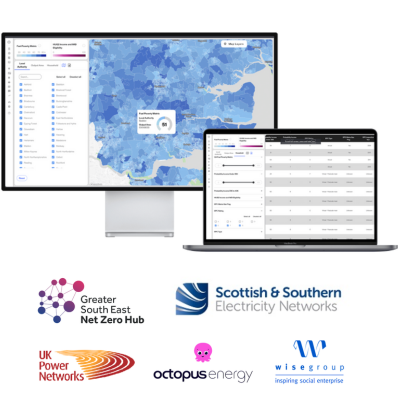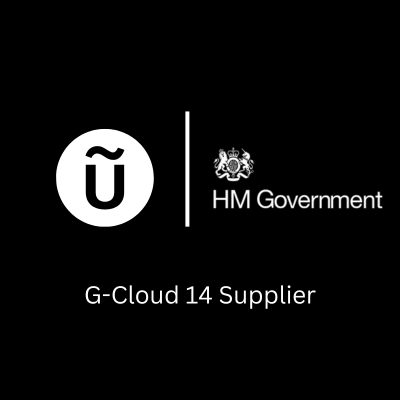As transport technology continues to evolve, we examine some of the main barriers keeping the industry from using data and AI to reach its full potential.

The UK transport sector is at a critical crossroads: While innovation in data and AI technology is promising smarter, greener and more efficient mobility solutions, there are a number of obstacles that the industry needs to overcome before these tools can be used in any meaningful way.
UrbanTide has participated in a number of UK transport events in recent months, including the Future Transport Forum, Connected Places Catapult Summit and the Transport AI conference, hosted by the Department for Transport (DfT).
Collectively, these events have highlighted just how pivotal the next few years will be for the UK transport industry, but also the challenges that lie ahead. Here’s what those challenges are and what needs to be done to tackle them.
1. System fragmentation and integration barriers
The Challenge
At the Future Transport Forum, it was highlighted that the transport landscape in Scotland and the rest of the UK is characterised by disconnected networks and disparate systems that create frustrating journeys for travellers.
As our Co-Founder Steven discusses in this interview, Mobility as a Service (MaaS) has been impossible to roll out in Scotland because the bus, train and other transport systems don’t integrate effectively and are intentionally kept separate. This makes multimodal journeys unnecessarily complex and expensive for travellers.
The Solution
To tackle this fragmentation, we need strong leadership and a coordinated approach to system integration. Like in England, Scotland’s local authorities need devolved powers to manage road networks and regulate shared mobility schemes. It’s crucial that authorities are given the power to bring systems and data together in centralised platforms that enable seamless multimodal journey planning.
UrbanTide's solution
At the Connected Places Catapult summit, we presented uMove_Rural - a pilot program that is helping quantify the problem transport authorities and the NHS face in providing access to healthcare for those living in rural areas. Early results have shown that fragmented multimodal journeys are resulting in missed hospital appointments, which cost the NHS upwards of £1billion each year.
2. Lack of quality data
The Challenge
A common challenge that came up time and again at these events was that poor data culture is pervading many transport organisations. Important traffic data is often undigitized, improperly stored, or locked in departmental silos. This lack of standardised data collection and sharing protocols undermines any efforts to create dynamic, responsive transport solutions. If local authorities and planners don’t have a true understanding of how people are using our streets, they can’t plan transport infrastructure accordingly.
The Solution
Free and open access to traffic data would give local authorities the evidence base they need to build the right infrastructure where people actually need it, rather than relying on what planners estimate might be needed and where.
The development of a National Data Library for transport data offers a foundation for better data management across the UK. It’s crucial that transport stakeholders embrace opening and sharing their data, regardless of quality concerns as even imperfect data provides value when properly contextualised.
There are other steps organisations can take to improve data quality, like establishing data-sharing partnerships, implementing common standards for collection and storage and creating centralised data hubs where information from multiple sources can be balanced and modeled.
UrbanTide's Solution
This is why we have developed uMove – a single-source data platform that integrates real-time and historic traffic data to help organisations better understand usage and travel patterns.
We also recently received TRIG funding from the Department for Transport to develop a new data insights tool, AIctive Routes.
AIctive Routes uses AI and data analysis techniques to uncover how people are really cycling around the city of Edinburgh - our pilot city for developing the tool. By revealing patterns in travel behaviours for commuter and leisure cycling journeys, the goal is to provide invaluable insights about what Edinburgh's cyclists really need, how effective the current infrastructure is, and support better strategic decision-making for cycle route planning in the future.
3. Skills gaps and decision accountability
The challenge
At Transport AI event, the DfT-hosted workshop on AI adoption barriers identified limited data literacy and interpretation skills as creating significant obstacles to the implementation of advanced transport technologies. Uncertainty around decision-making frameworks and accountability for AI-driven outcomes also further complicates adoption.
The solution
Transport AI forum speakers suggested that AI itself offers a big part of the solution. There's a real potential to bridge skills gaps by using AI-powered data tools to provide consistent insights and lower barriers to data-driven decision-making.
However, clear governance frameworks must establish accountability chains for decisions involving automated systems. Investment in workforce training programs will also build internal capability, while partnerships with academic institutions can address longer-term skills development needs. Creating decision support systems that augment rather than replace human judgment will build confidence in new technologies.
UrbanTide's solution
UrbanTide has been offering a range of open data training programs in Ireland for the last 5 years that can be taken online or in-person. These courses are built to give participants confidence and competence in the growing open data ecosystem and a 360-degree view of the open data world.
Looking forward
The future of UK transport depends on successfully navigating these interconnected challenges. The government's commitment to positioning Britain at the forefront of AI innovation is clear, but making this happen in practice requires action and sustained collaboration across the public and private sectors.
By embracing data sharing, investing in integration infrastructure and addressing skills gaps, the UK can create a transport ecosystem that delivers on the promise of innovation: more efficient, sustainable, and user-friendly mobility for all.






